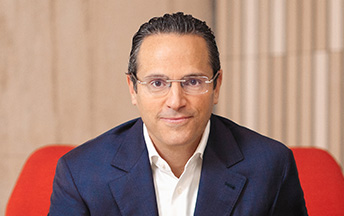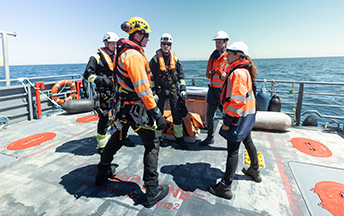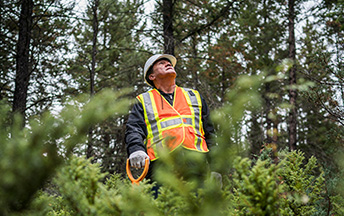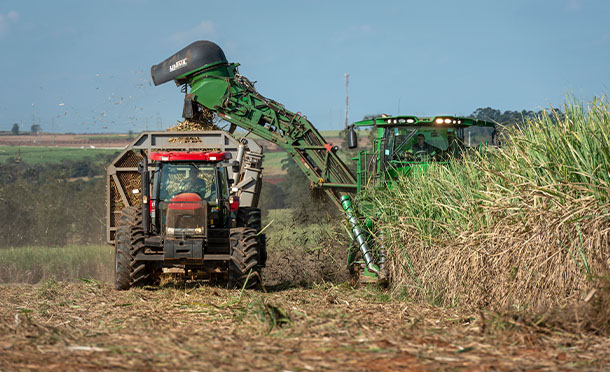Biofuels
Shell aims to be a material and profitable supplier of sustainable low-carbon fuels to help decarbonise harder-to-abate sectors including aviation, marine and commercial road transport.
We produce and supply low-carbon fuels such as biodiesel, bioethanol, renewable natural gas (also known as RNG, biogas or biomethane), renewable diesel (also known as hydro-treated vegetable oil or HVO) and sustainable aviation fuel (SAF) to help lower the carbon emissions from transport.
These fuels can be blended with existing fuels, such as diesel, petrol and aviation fuel, and do not require costly investment in new infrastructure, which means they are a practical option for reducing transport emissions.
Shell is one of the world's largest traders and blenders of biofuels. In 2022, around 9.5 billion litres of biofuels went into Shell’s petrol and diesel worldwide, compared with 9.1 billion litres in 2021. This included around 3 billion litres through our joint venture Raízen (Shell interest 44%, not Shell-operated) in Brazil, compared with 3.2 billion litres in 2021.
Raízen is one of the world’s largest biofuel producers, with one of the lowest CO2 biofuels available today. In 2022, Raízen produced around 3 billion litres of ethanol from sugar cane and about 26 million litres of second-generation cellulosic ethanol made from inedible agricultural waste. In 2022, we signed a long-term agreement to buy 3.25 billion litres of sugar-cane cellulosic ethanol from Raízen, which will be produced at five new plants that Raízen intends to build.
One of our priorities is to increase our low-carbon fuels production capacity. In the Netherlands, we are building one of Europe’s largest biofuel production facilities, which will produce up to 820,000 tonnes per year of low-carbon fuels from predominantly waste feedstocks. The facility is expected to come online in 2025.
To support our biofuel production capacity, we are also investing in new feedstocks. In 2022, we acquired EcoOils, which uses its recycling technology to turn waste into spent bleaching earth oil, an advanced biofuel feedstock that can be used to produce sustainable low-carbon fuels.
Global biocomponent purchase by feedstock [A] [B]
Percentage
[B] Percentage may not add up to 100% because of rounding.
Sustainability of biofuels
We purchase biocomponents to produce biofuels, blend into fuels and/or to trade. Certain biofuel feedstocks are considered higher risk with regard to human rights, biodiversity or the release of carbon into the atmosphere. To help mitigate these risks, all the palm oil, sugar cane and South American soy feedstock we purchase is certified as sustainable under credible sustainability standards like the Round Table on Responsible Soy Association, the Roundtable on Sustainable Palm Oil and Bonsucro. We have also committed not to use crude palm oil or its derivatives in any of our biofuel refineries.
Read more about biofuels and also our approach to the sustainable sourcing of biocomponents at www.shell.com/biofuels.
Sustainable aviation fuel
We continue to take steps to expand our production capacity, invest in promising technologies and increase demand for SAF. In 2022 we signed a non-binding memorandum of understanding with Lufthansa to supply SAF for its aircraft at airports worldwide; we started supplying SAF in Singapore, the first company to do so, for customers in South-east Asia; and together with Accenture and American Express Global Business Travel, we launched one of the world’s first blockchain solutions for SAF to help companies decarbonise their business air travel.
Read more about SAF at www.shell.com/business-customers/aviation/the-future-of-energy/sustainable-aviation-fuel.
Renewable natural gas and bioLNG
We produce renewable natural gas from agricultural residues and manure. It can be used instead of natural gas (as renewable compressed natural gas or bioLNG) in vehicles and shipping to reduce CO2 emissions by 50-100% over the life cycle of the fuel, compared with fossil fuels.
In the USA, we already operate one renewable natural gas (RNG) production facility in Oregon and are building three more in Idaho and Kansas. In early 2023, we completed the acquisition of Europe’s largest RNG producer, Nature Energy of Denmark, which produces RNG from agricultural, industrial and household waste.
Read about LNG and bioLNG at www.shell.com/energy-and-innovation/natural-gas/lng-for-transport/lng-for-road.
Read about renewable natural gas at www.shell.com/energy-and-innovation/new-energies/low-carbon-fuels.










